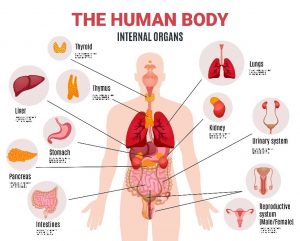Many people who struggle with their weight have the common thyroid condition known as Hashimoto’s thyroiditis. This condition sounds rare and exotic, yet it is present in up to 28% of our population, affecting five to eight women for every man affected. Sadly, most people who have the condition don’t even know they have it.
Hashimoto’s thyroiditis is an autoimmune condition that results in the destruction of the thyroid gland, eventually leading to hypothyroidism, or an underactive thyroid. Most people with Hashimoto’s have a hard time keeping weight off despite maintaining the same diet and exercise routines they have had for years. This is because the thyroid gland controls our metabolism, and even a slight deficiency in thyroid hormones, such as that caused by an immune-system attack, can slow down metabolism.
Most doctors tell thyroid patients that they simply need to eat less and exercise more. However, this advice can be quite detrimental and put the person’s body into a deeper fat-storing mode! Unfortunately, due to improper testing, most patients are also unaware that they have thyroid disease.
Most doctors only test patients using a TSH (thyroid-stimulating hormone) blood test. However, this can lead to many missed diagnoses, because the TSH result can remain normal for as long as a decade while the thyroid gland is under attack by the immune system.
Thyroid antibody tests are more accurate and can reveal the metabolism-altering attack on the thyroid gland. It is recommended to take a more complete thyroid panel consisting of the following tests: TSH, free T3, free T4, thyroid peroxidase antibodies, thyroglobulin antibodies, and reverse T3, for a more accurate diagnosis.
Looking at calories in and calories out can be very detrimental to both health and weight loss. What is the best approach? Nutrient-dense diets free of problematic foods can help people with thyroid disease feel better, lose weight, and even reduce their markers of autoimmune disorder. Gluten, dairy, and soy are the most commonly problematic foods in thyroid disease, with 88%, 80%, and 65%, respectively, of thyroid patients reporting feeling better when these foods are removed from their diet.

